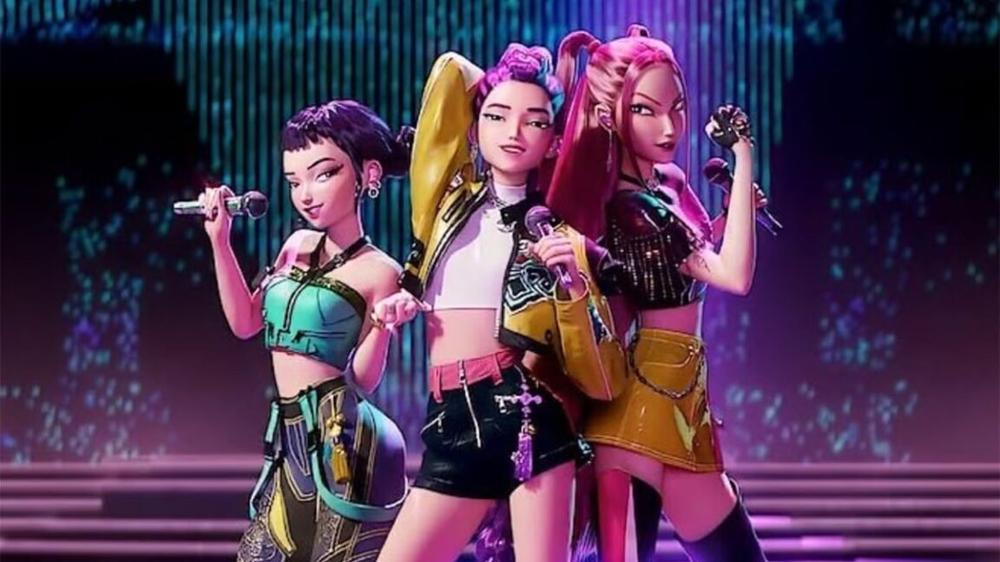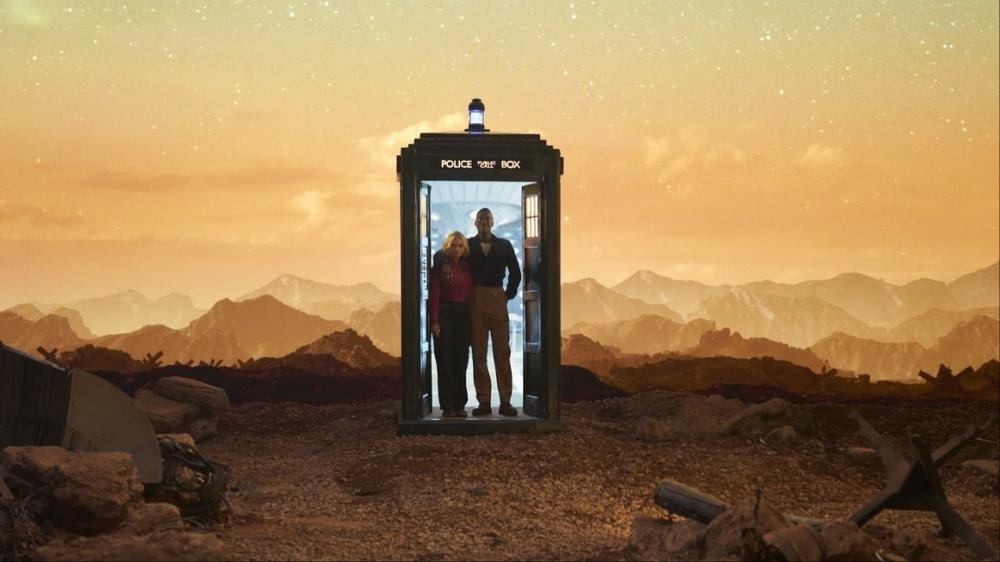Netflix has a summer megahit on its hands with its animated musical feature film, K-Pop Demon Hunters. Since its June release, the critically acclaimed film has won fans of all ages, fueled by a killer Korean pop soundtrack featuring one earworm after another. The biggest hit is "Golden," which just hit No. 1 on Billboard's Top 100 chart. (The last time a fictional ensemble topped the charts was in 2022 with Encanto's "We Don't Talk About Bruno.")
K-Pop Demon Hunters is now Netflix's most-watched animated film of all time, and that's not just because of the infectious music. The Sony Animation team delivers bold visuals that evoke the look and feel of anime, the plot is briskly paced, and the script strikes a fine balance between humor and heart.
(Spoilers below.)
The film deftly lays out the central premise in the first few minutes. In ancient times, demons roamed the Earth freely and preyed upon human souls, until a trio of women—gifted singers and demon hunters—created a magical protective barrier with their voices known as the Honmoon, trapping the demons behind it. The Honmoon has been maintained ever since by subsequent musical trios/demon hunters from each generation. The dream is that one day, the Honmoon will become so strong it will turn "golden" and seal away the demons forever.
Naturally the demons, led by their king Gwi-Ma (Lee Byung-hun), don't want that to happen, but the latest incarnation of demon hunters—a K-Pop band called Huntr/x—is close to accomplishing the Golden Honmoon. Rumi (Arden Cho) is the lead singer, Mira (May Hong) is the group's dancer/choreographer, and American-born Zoey (Ji-young Yoo) is the rapper and lyricist. But Rumi harbors a secret: her father was a demon, and she is marked by the telltale purple "patterns," which she keeps hidden from her bandmates.
Hoping to destroy the Honmoon once and for all, Gwi-Ma sends five of his demons to form a K-pop boy band, the Saja Boys, led by Jinu (Ahn Hyo-seop). Their popularity soon rivals that of Huntr/x and threatens the Honmoon—just as Rumi's patterns spread to her throat and weaken her singing voice.
How it’s done, done, done
That's a big problem because their new hit single, "Golden" (performed by South Korean singer/songwriter Ejae), spans an impressive three-octave range, eventually hitting an A-5 on the chorus—a high note usually reserved for classically trained operatic sopranos. (Ejae's performance on this song has impressed a lot of YouTube vocal coaches.) And the first live global performance of "Golden" is supposed to be the event that ushers in the Golden Honmoon. It's a soaring, impeccably constructed "I Want" tune typical of Disney princesses.
But the other songs don't disappoint. "How It's Done" (a personal favorite) anchors the opening fight sequence on Huntr/x's private jet, while the Saja Boys make their heartthrob debut with the bouncy "Soda Pop." Huntr/x dishes up their best demon insults in the diss track "Takedown" (performed by members of South Korean girl group Twice), while Rumi and Jinu share a moment of truce in the soulful duet, "Free." And when the Saja Boys make their final play for the souls of the fans with "Your Idol," our heroines fight back with a brand new tune, "What It Sounds Like."
Co-director (with Chris Appelhans) Maggie Kang conceived the story and helped write the screenplay, intending the film to be a love letter to K-pop and her Korean roots. But she also drew on traditional Korean mythology and folklore.
For instance, the Saja boys take their name from the Korean equivalent of the grim reaper, the jeoseung saja, while Huntr/x wield traditional weapons: a saingeom sword (Rumi), a gokdo polearm (Mira), and shinkal throwing knives (Zoey). Jinu has a pet tiger (Derpy) and magpie (Sussy) based on a Joseon style of Korean folk art called minhwa, who are not demons and provide comic relief. Those details, combined with the colorful anime-influenced visual style, add a rich layer of texture to the basic storyline.
Some have criticized K-Pop Demon Hunters for short-changing character and thematic development in the service of a tightly condensed runtime. And it's true that the film adheres to a predictable formulaic storyline. But it's a winning formula, and the South Korean elements and catchy tunes make it a distinctive addition to the genre. There's a reason K-Pop Demon Hunters has such broad popular appeal, and its unifying message of the power of music to heal, unite, and build community—celebrating honest authenticity rather than striving for impossible perfection—is a powerful one.
K-Pop Demon Hunters is streaming on Netflix. Kang has stated publicly that she would love to create a sequel and spinoff side stories to flesh out the film's fictional universe. Given its enormous success, I'm betting Netflix would be delighted by the prospect.

 Anthropic’s Claude AI model can now handle longer prompts
Anthropic’s Claude AI model can now handle longer prompts